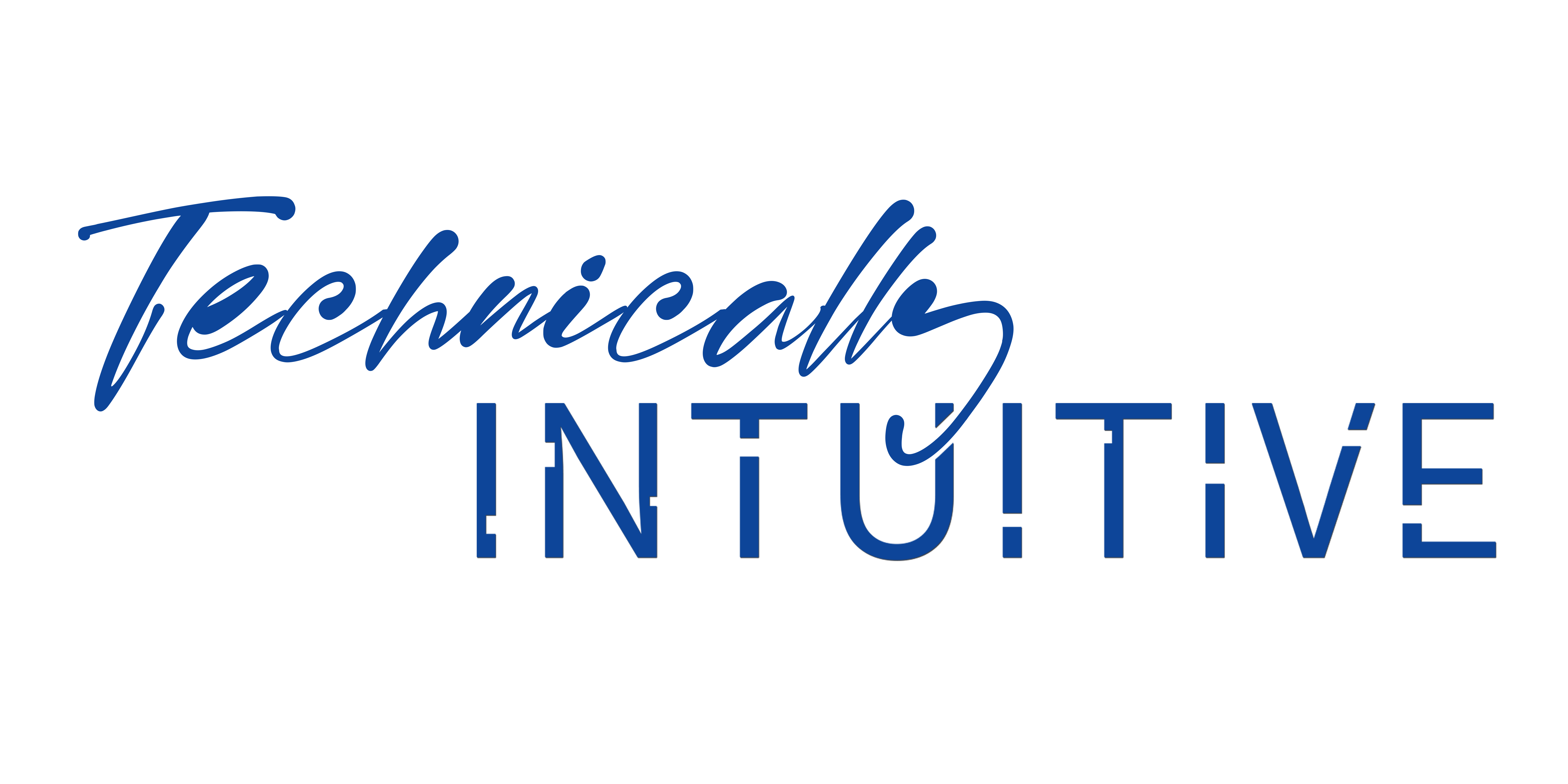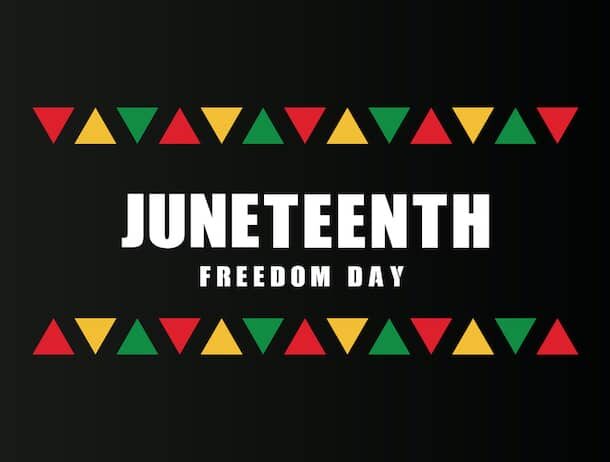Featuring Dr. Aikyna Finch, Faculty, Dr. Wallace E. Boston School of Business and
Dr. Bobette Brown, founder, The Lady Chapter
Women have traditionally taken a back seat to men when it comes to leadership in the workplace. In this episode, APU’s Dr. Aikyna Finch talks to Dr. Bobette Brown about overcoming the disadvantages that women leaders face.
Listen to the Episode:
Subscribe to The Everyday Scholar
Apple Podcasts | Spotify | Google Podcasts
Read the Transcript:
Dr. Aikyna Finch: Greetings, greetings, greetings everyone, and welcome to the podcast. I am Dr. Aikyna Finch, and today I have the pleasure of speaking to Dr. Bobette Brown. Dr. Bobette Brown is a training professional with 25+ years of corporate and military experience. As a Doctor of Strategic Leadership, Certified coach, and DISC Certified Practitioner, Dr. Brown has helped evolving female leaders leverage their experience and influence to positively impact their teams and organizations. How are you doing today, Dr. Bobette?
Bobette Brown: Hello, Dr. Finch. It’s a pleasure to be here. I am well, how about you?
Dr. Aikyna Finch: Wonderful, wonderful. We’re going to have a wonderful conversation on women leadership. And with that being said, what sparked your passion for women leadership?
Bobette Brown: Quite honestly, Dr. Finch, part of it probably is just my upbringing. When I looked back over my life and really realized how many opportunities I had as a woman leader, I felt completely ill-equipped. It has been said that the irritated oyster will produce the pearl – and so, because I felt ill-equipped in many instances, particularly growing up, I’m a former military 82nd Airborne Paratrooper. Yes, ma’am, I did jump out of perfectly good airplanes. But despite that, there were so many times I felt ill-equipped to do the work that I had been assigned. Whether in the military [or not], we may have great opportunities to develop our leadership skills in corporate America or nonprofit sectors, but there were always gaps that I felt needed to be filled. I longed for leadership development. I would say that’s the thing that began to be the impetus for me really striving and getting into this area. “Hey, I want to give others what I didn’t have the opportunity to gain myself.”
Dr. Aikyna Finch: I love that, giving others what you didn’t have the opportunity to gain. And what are some of the gaps that you mentioned? What have you seen most common in today’s workforce and leadership?
Bobette Brown: I would probably say one of the major areas, and quite honestly, Dr. Finch, it’s really interesting because it has been said there’s nothing new under the sun. I will say that the gaps include competence, number one, and confidence. There are times in our leadership capacity and leadership roles where we felt, I can say where I’ve worked with women, my clients as well, felt ill-equipped, and so I would say that level of competence.
But again, that confidence when they did have the knowledge, the skill, the experience, the opportunity, still, because of the societal norms, because my specific audience, I work with a lot of women, and so, because of the biases and the struggles that have pretty much traditionally been the case in many workforces, that competence piece has been missing. But I will say, just let me interject and say that things are changing. And with this next generation of evolving female leaders, we definitely can see they have much more boldness, courage that we see as they enter the workplace.
And then now, the big thing as well is character. The three Cs, both the competence, the confidence, and also the character. Because their personality may take them into a place, but their character is what they will need to make sure they maintain to really adequately lead their teams and organizations.
Dr. Aikyna Finch: Ooh, I love the three Cs. I love the fact that you called them out. Have you noticed that that is a characteristic for women only, or is that all across the board in our emerging leaders, period?
Bobette Brown: I would say in some degree, to be fair, yes, I’ve seen that both within the men and women. However, again, the traditional business structure when we look back at history, I would say that for women, they have a greater struggle in this area again, because for so many years, leadership was only seen through the perspective of a male’s role, a male’s personality. Many times, women were seen less than, although statistics have indicated through Pew Research, who recently conducted a survey and actually asked their audience, their surveyed, to say, and asked, “Which gender would you prefer?” And quite honestly, it was even. But we still see this particular bias mindset, particularly when it relates to women. And I will say it’s because historically that has been the case.
But again, one thing that I can say, and I think we’re all seeing it, is that things and the tides are shifting. And I’m so grateful for those tides shifting. But the reality is, is that it’s still an area that impacts primarily women. We hear of things such as the glass ceiling. And the glass ceiling, where now we see quite a few women have really been able to penetrate. And that glass ceiling is this barrier where it has suggested that women have, there’s this bias, this barrier that’s preventing them from being able to go to a certain level in an organization.
And then, for women of color, not only do they have to deal with that, but they have the one, two punch of not only the glass ceiling, but what we call the concrete ceiling, where they not only deal with what their struggles are as related to their gender, but also within their ethnicities. Again, I won’t say that all is not lost. We definitely can see that change is on the horizon, and I just want us to keep going in that direction.
Dr. Aikyna Finch: I love that, change is on the horizon. And can you tell me some of the changes that you’ve seen coming over the horizon recently? What should women be looking forward to?
Bobette Brown: Well, I’ll tell you what. The look of the 21st century workplace has really shifted, and is shifting in a manner like never seen before. Currently, according to recent research, the workforce really consists of expectations and experiences from five generations ranging in age groups. So, we have from Generation Z, and those are the folks that were born between 2001 and 2020, all the way to the traditionalists. With the transfer and the shift that we see within both businesses and organizations under the guise of the Great Resignation and the Great Reshuffling, we see that there’s a lot of workplace shifts that are occurring. And it’s freeing up seats for lots of folks, but certainly, I’m giving a shout-out to the women that could potentially take these seats and really make a difference in their workplaces moving forward. And I think that that’s one of the areas that we need to continue to cultivate and encourage people, the evolving leaders, to take the stance, be in those roles, and own them as they’re stepping into this space.
But when we look right at the top level of leadership, we can see now that there is a woman VP for the United States of America. I had an opportunity to talk with a young adult woman yesterday, an evolving leader. And I was sharing with her, we were watching a sports show and I said, “In my generation,” I said, “Do you see those ladies down there on the field? You would have never seen that years ago.” So we can certainly see shiftings occurring, but again, as I was sharing earlier, I think it’s important that we keep going so that we can really make sure that the rules and the laws and the practices within the business structure will continue to change for women, and that they’re able to be positioned for some of the same seats and high level positions of leadership in organizational structures that have, for decades, been the posture of most men.
Dr. Aikyna Finch: Wow. That is powerful. So, let’s talk about this, because I do know, Dr. Brown, that you don’t just talk to talk, you walk to walk. You actually have a program where you help emerging female leaders. So, tell us your definition of the emerging female leader and why you decided to help them.
Bobette Brown: Oh, oh, you’ve tapped into something that makes me so excited. Yeah, so the emerging, the evolving leaders that I’m talking specifically about are both the Zoomers, we call the Gen Zs and also the Millennials, or we could say the Ys and the Zs. And these are the women that are, quite honestly, ready to take their places at the table. Because of the Great Reshuffling and because of the Great Resignation, there are quite a few seats that are becoming available. And when we look into the marketplace, we realize that there are a group of people that have been standing on the periphery and they are ready to grab the baton from those who have taken their lap, if you will, or laps around the proverbial, if you will, track. And that’s what I think about.
So, I started something in 2019, it’s called the Lady Chapter. The Lady Chapter is an organization where we really are focused and equipped on educating, equipping, and empowering. We really want to create that momentum that I’m talking to you about. We want to create momentum for these evolving leaders so that they can use their experience, they can use and leverage their voices, that they can use and really be completely engaged in making a change in their teams as well as in their organizations.
And so, with that being said, we started a program. It is a 10-month program. It’s an application-only program. And the thing about this particular program, and I think it’s so key, is we make sure, number one, that there is a very high level of accountability. And I’ll say this program is offered to selected participants without charge. And some of the topics that we talk about that are a part of this program are what we see based on research, leadership development, mentorship, coaching. All of those components are part of our program, but we focus on emotional intelligence. We want these leaders to be able to determine their own self-awareness and where they fit, where are they emotionally mature or immature, and then give them strategies to be successful.
So, we focus on emotional intelligence. We’re focusing in on leadership and followership, what does that mean, and how can they use their voices in that space, which is the next area we also focus, is on using their voices. This means they must be strategic communicators. This is key. Quite honestly, both the Gen Zs and also the Millennials, they are global leaders just because of when they were born. And so, we want to help those that become a part of our program to develop and experience and embrace a level of cultural agility so that they can begin to be a part of ensuring that organizational leaders and those that they have an opportunity to have an ear to and with, to understand if they are going to exceed, there are three different cultural practices that they must engage, and that is the cultural adaptation. It’s also a cultural minimization and a cultural integration.
And those are just big words. Cultural adaptation basically means that I’m talking about the processes and time that they will need to comfortably integrate into this new culture. And for them, it may be a little bit easier, but remember there’s five different generations in the workplace.
And then, the cultural minimization really wants to help them to emphasize the commonalities between people of other cultures and themselves. Why would I want to do that? They want to learn that because then it will minimize their differences. In every organizational leader, we’re looking for sustainability, long-term sustainability, and success in talent acquisition. And the maintaining of talent acquisition is huge.
And then, the final piece of that necessary areas for cultural agility is the cultural integration. And really, that occurs when the employees, these ladies that we’re working with, these young adult women, they are able to compromise or integrate the practices of other groups without diminishing their own. And this is key for these leaders.
So, these are some of the practices that we work through over this 10-month period. And we are inviting speakers as well, influencers, leaders in the marketplace, so that they can come in and be a part of, again, inspiring, educating, and equipping these next generation leaders to be successful so that when they take their seat at the table, they are both confident and competent. And we want them as I said earlier, we want them to have the momentum so that they can go further than the previous generation.
Dr. Aikyna Finch: Wow. Dr. Brown, that is powerful. That is a lot for 10 months.
Bobette Brown: Yes, 10 months.
Dr. Aikyna Finch: With no cost.
Bobette Brown: Yes. Well, there is a cost, but there’s no charge to them. There is a cost to those, their time, they have to lean in. There are assignments, Dr. Finch, that they have to turn in. They have assignments and work and accountability. We have a piece also where they have to go and engage in the community. So, I’m always a little careful when I say at no cost, because there will be a cost. There is an investment. But however, when they become a part and are accepted into our program, we like to say there’s no charge.
Dr. Aikyna Finch: Wonderful, wonderful. And I know that this program has a specific age range as well. Am I correct?
Bobette Brown: Yes, ma’am. We work specifically within the age group of 24-37. Research has proven that that age group unfortunately have really been overlooked and they are really going through challenges during this period of time. And when we looked at research during my time as I was working through my dissertation, I discovered that a lot of organizations have forgotten about this age group. They’ve gone to the children, the adolescents, but they’ve forgotten about this particular group. And let’s face it, the ones that are on the periphery, those that are in the workplace right now, are not the adolescents that people have been spending lots of energy in developing as leaders. We need to get this group ready. So, our age group, we are focusing on that 24 through 37 years of age.
Those that are listening to this program, and they would like to know more, I want to encourage them to go to our website, the ladychapter.org. If you believe in what we are doing, and maybe in your particular area, you don’t have anything like this, but you want to be a part of supporting our work, where we are intentionally focusing on those next generational female leaders, I’m going to encourage you to support us. And you can go right to our website at theladychapter.org and be a part of supporting us so we can continue to raise and amplify our voice and our visibility in the marketplace.
We want businesses to know that we are here and we really, really could use your support. And I need the help to be able to do what we’ve been called to do in supporting our mission and our vision. And so, we’re looking for some partners to come alongside of us, to again, wave the flag and encourage this generation to be, as I learned when I first joined the military, there was this theme, Dr. Finch, it said, “Be all you can be.” So, I joined the military, they brought me in with the, “Be all you can be.” After all, who doesn’t want to be all you can be? And that’s what will happen if we can get some partners and supporters to go to our website and support us as we continue to train, educate, and equip, and create the momentum for this next generation of female leaders.
Dr. Aikyna Finch: I do love that, Dr. Brown. And you mentioned if you don’t have something in your area, what areas is the program in right at this present moment?
Bobette Brown: Thank you for asking that. We started in 2019 and we started in the DC, Maryland, Virginia area, and that’s just a conglomerate. Literally, you can walk across the street and be in Virginia, so we call it the DMV area. We started that, and for two years we just had it in the DC, Maryland, Virginia area, and then we launched in Columbus, Ohio. And that cohort there, they are thriving, they are growing. We are seeing exponential change in the women there. And this coming fall, our next session we’re launching, we’re going south, a little further south. We’re going to go to Charlotte, North Carolina.
So, we’re very excited, Dr. Finch, for the opportunity to be able to impact the emerging, evolving leaders that are in those locations and build some highly collaborative leadership relationships. It’s really, really important. And that’s why we keep our model very small. We include both peer-to-peer leadership. There are opportunities for them to build those collaborative relationships.
Currently, our program is in a hybrid state, where we both meet in-person and also online. And we’re looking forward to growing even at a deeper level and a greater level in the future. And so, I’m just really excited about the work that we’re able to do with this generation, the 24 through 37, to meet their needs to make sure… One of the things that Maslow talks about a great deal, he’s a psychologist, if you will, that really focuses in on the needs of individuals. And he talks about the need and the power of community and how important it is that there is just not this physiological need and this safety need, but there’s the love and belonging needs and the esteem need and the self-actualization needs, which people have a desire to become all that they can be. And so, that’s what we’re doing with this generation.
Dr. Aikyna Finch: I love it. So just so that I’m correct, you are helping women 24 to 37 be all they can be through the theme of, “Believe in us.” Am I on the right track?
Bobette Brown: You are on the right track. And so, that’s what we say, “Believe in us.” And you know what? Whether you want to believe in them or not, they are on the horizon. And so, we have a responsibility, those of us that have the expertise that they need, to really make sure that we can do all that we can do to help them to be all that they can be.
And that was the beautiful thing, Dr. Finch, when I joined the United States Army and I just came in, I was wanting to be all I could be, which is how I joined and became a part and gained my wings, earned my wings as a paratrooper, and later joined the elite ranks of the 82nd Airborne Division located in Fort Bragg, North Carolina. But the beautiful thing about that whole theme of, “Believe in us” and also helping people to “Be all they can be,” that there was a level of collaboration that the military leaders at that time had to really embrace. And that was, they were trying to increase the number and quality of their soldiers. And they were trying to maintain a high level of sustainability and defense against any potential threats to United States. So, they came up with this theme, “Be all you can be.”
And of course, it was really great because it tied into the key characteristics of market intelligence strategy. It was very customer-focused, in other words. It spoke to the needs of their desired customers. After all, who doesn’t want to be all they can be? And then, it also helped them to mitigate any potential risk. And also, it really expanded their competitive edge. And so, with that, each one of those military leaders had to play a part in making sure that all of us, all of the soldiers were informed and educated, and that we had the essentials so that we could make sure that we could protect the United States of America in the event of a threat.
Well, I’ll say COVID was a threat for many businesses. Many businesses have not made it, and many businesses are still trying to, and organizational leaders are trying to get back on their feet. Well, it’s going to take a team. And I want those that are listening, I want you to know that the Lady Chapter Leadership Development Program is here to help you to inspire a new generation of recruits, to fill the gaps that you may have in your organization, on your teams, because we want to help you meet your goals. And so, that’s why we started with the Lady Chapter Leadership Program, again, really inspiring this group. And again, I can’t say it enough. We must work collectively and collaboratively if we are going to be able to prepare this next group to meet and exceed, hopefully, their future assignments and those that will be in both their teams and in their organizations.
Dr. Aikyna Finch: Thank you, Dr. Brown, for this wonderful synopsis. I have truly learned a lot about the Lady Chapter and women leadership as a whole. Knowing that 24 to 37, that age bracket, is where people are not being seen, heard, that is a great place for us, as leaders, to start focusing ourselves and focusing on that talent so we can help amplify their voice. Would you say that’d be correct?
Bobette Brown: Absolutely, Dr. Finch, and I want to thank you so much for allowing me to be a part of sharing my passion with your audience. And again, I want to remind them, please consider going to our website at theladychapter.org and support us there. Also, join us on all of our social media platforms at the Lady Chapter. And again, thank you so much. Thank you for the entire team for this opportunity to be with you today.
Dr. Aikyna Finch: And thank you, Dr. Brown. I am Dr. Aikyna Finch, be safe and be well.







